Student Alexander Böck – Practical in Ngaoundéré
Part of our DFG- and Baden-Württemberg is the exchange of students to enable them to carry out their own research. Alexander has arrived in Cameroon, together with Dr. Albert Eisenbarth, in May 2016. He is staying in the Programme Onchocercoses laboratory until mid-July. His particular interest is the movement of the microfilariae of Onchocerca ochengi in the skin. Previous work by Frey Zettl has shown that the natural movements of microfilariae is directed towards the ‘head’ and enables them to move quiet quickly, about 1 mm in less than 10 seconds (=> see the video on the front-page of our website!).
The question now, which Alexander is going to investigate is, whether there are any attractants (physical or chemical cues), which can prompt the microfilaria to move into a defined directed – or to avoid it.
Alexander is also participating in the routine inspections of Simulium breeding sites and the monitoring of Onchocerca spp. transmission by anthropo-boophilic Simulium flies.
We wish him all the best for his stay in Ngaoundéré!
Alfons Renz
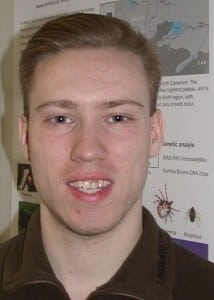
stud. biol. Alexander Böck, Univ. of Tübingen
Back from Cameroon, he wrote this report on his practical in Ngaoundéré
=> Read more

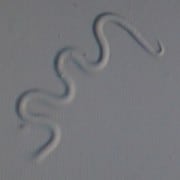
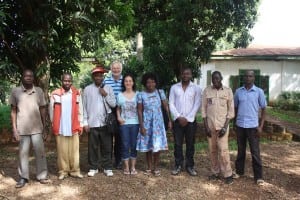
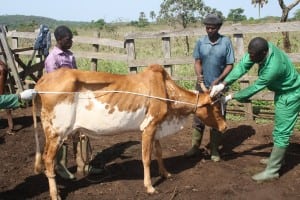
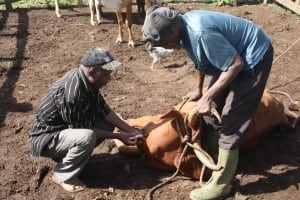
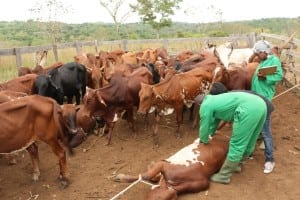
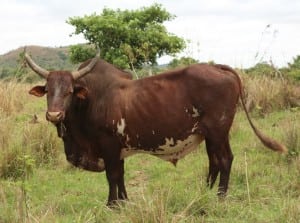
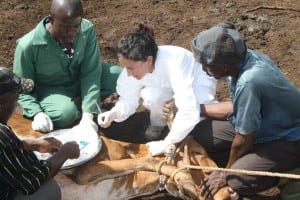
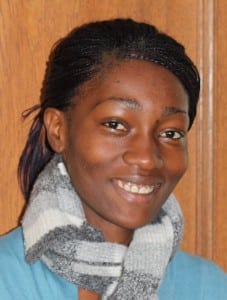 Babette Abanda, a graduate student from the University of Ngaoundere, Cameroon, has arrived in Germany to learn molecular-genetic techniques at the Institute of Tropical Medicine in Tübingen. There, in the laboratory of Dr. Wolfgang Hoffmann, she is analying genetic data from the project’s own cattle herd which is naturally infected with different parasites, like filariae, intestinal helminths and trypanosomes. Her two-month long research stay is funded by a travel grant from the Boehringer Ingelheim Foundation.
Babette Abanda, a graduate student from the University of Ngaoundere, Cameroon, has arrived in Germany to learn molecular-genetic techniques at the Institute of Tropical Medicine in Tübingen. There, in the laboratory of Dr. Wolfgang Hoffmann, she is analying genetic data from the project’s own cattle herd which is naturally infected with different parasites, like filariae, intestinal helminths and trypanosomes. Her two-month long research stay is funded by a travel grant from the Boehringer Ingelheim Foundation.